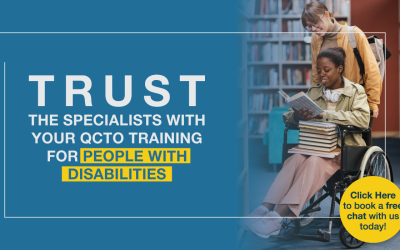With roots dating back to 1994, and formerly known as Phumelela Africa, Phumaf is a South African professional engineering organisation that specialises in civil engineering and project management. Phumaf sees itself as not merely consulting engineers, but rather the provider of engineering solutions that touch people’s lives.
In February 2015, Phumaf approached Progression about implementing a learnership programme in response to their skills development strategy and business imperatives.
The Business Challenge
As part of the skills development strategy that was implemented, Phumaf, together with Progression, implemented a 12 month Learnership programme for four contract workers based in the Kroonstad region. “This was in response to Phumaf’s mandate to empower people who ultimately impact on their bottom line,” comments Candice Lambert, Business Development Consultant for the project.
The programme selected for the learners was a Business Administration NQF 3 learnership, which is often implemented when embarking on skills development initiatives for previously unemployed or unskilled individuals. “Business Administration forms a solid introduction to the working world and how business operates. The opportunities for growth on completion are unlimited as it’s really about getting learners ‘ready’ for the workplace,” adds Candice.
Although the learners were working on the roads as part of a contract, discussions with Phumaf revealed that the training implemented needed to focus on empowering the candidates. “The decision to go the route of Business Administration, rather than a Road Works or Construction-based learnership, was strategic. Ultimately the learners could be exposed to opportunities greater than their current roles, which focused predominantly on manual labour,” adds Candice.
A Creative Approach to Skills Development
The selection of the type of learnership to be conducted was somewhat unconventional. Best practice suggests that when implementing learnerships, the learners’ theory and practical training need to be closely aligned to ensure on-the-job learning through coaching and mentoring – which supports the outcomes of the programme. In this case, because the learners were working on the roads, the question of linking the training with their job roles had to be redefined.
“The biggest challenge in this project was to craft an environment where the learners in the programme could be exposed to every facet of the Phumaf business, whilst also working on their core function of constructing roads,” states Candice.
This meant the notion of “classroom” training was challenged in the sense that the usual training and work facilities were not suitable. Progression therefore set out to address this challenge in a creative and collaborative method. “As the road-work environment was not entirely conducive to offering training in a formal setting, a mobile office was set up in order to meet these needs while still complying with the estimated hours for training,” states Candice. “Finding a training provider who was willing and had the capacity to assist with the project was very critical. We also had to consider the job tasks which could be assigned to the learners that would support them in compiling and submitting their Portfolios of Evidence (POE)”.
By combining and integrating the two functions of the practical, administrative work environment and roadwork training, the learners were able to gain a better understanding of the ‘bigger picture’ in business. “The learners continued as workers doing manual labour, like paving and installation of curbs, etc. however, to supplement their training, we gave them additional administration work where they were able to use computers and work on programmes like MS Word, MS Excel and emails. They handled the morning register for the other workers on site, prepared the monthly wages as well as recorded the material used and received on site,” comments Ngoako Letlalo : Head of Construction Unit at Phumaf.
“Most companies have policies and quotas to fill, which pose certain challenges when implementing transformation-driven strategies. However if we can embrace the spirit of transformation by remembering to focus on the empowerment of the people involved, great strides to ‘getting it right’ are made,” says Beth Cook, CEO of Progression. “In this instance, learnerships offered a great opportunity for bridging the skills gap that is so apparent and one that poses a real challenge in terms of the unemployment crisis.”
What Made Phumaf’s Project Unique
The four learners are currently being considered to take up positions in order to further their career development. George Ngwenya, Head of Department: HR and Administration at Phumaf comments, “In my view I think the opportunity granted to them gave them the capacity to be open to new challenges where they now know that everything, through constant practice, is possible.”
Candice believes that Phumaf’s willingness to participate in the project, even though it required some unconventional thinking and additional resources, was testament to their commitment to transformation and the empowerment of people. “Organisations need to think broader when implementing skills development initiatives. We need to walk away with the knowledge that empowerment in the skills development arena does not always follow a set path, but rather could be implemented with different structures in place. It’s about empowering growth within people – compliance will follow,” she states.
Recent Posts
- Embracing the Rainbow Nation: Exploring Race, Tradition, Culture & Religion
- Achieve Compliance While Driving Meaningful Change
- Boost Your B-BBEE Score with a Full-Service Skills Development Solution!
- Discover the Power of Inclusion – Join our Next DEIB Webinar
- Build Skills, Grow Potential: Partner With Us For Learnership Success






